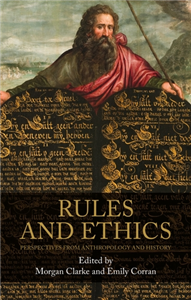Description
More Information
Rights Information
Albania, Algeria, Angola, Argentina, Armenia, Australia, Austria, Bahrain, Belgium, Belize, Benin, Bolivia, Bosnia and Herzegovina, Botswana, Brazil, Bulgaria, Burkina Faso, Burundi, Cameroon, Canada, Cape Verde, Central African Republic, Chad, Chile, China, Colombia, Comoros, Congo [DRC], Congo, Republic of the, Costa Rica, Ivory Coast, Croatia, Czech Republic, Denmark, Djibouti, Ecuador, Egypt, El Salvador, Equatorial Guinea, Eritrea, Estonia, Ethiopia, Faroe Islands, Finland, France, French Guiana, Gabon, Gambia, Georgia, Germany, Ghana, Greece, Guatemala, Guinea, Guinea-Bissau, Guyana, Honduras, Hongkong, Hungary, Iceland, India, Indonesia, Iran, Iraq, Ireland, Israel, Italy, Japan, Jordan, Kazakhstan, Kenya, Kuwait, Latvia, Lebanon, Lesotho, Liberia, Libya, Lithuania, Luxembourg, Macau, China, Macedonia [FYROM], Madagascar, Malawi, Malaysia, Mali, Malta, Mauritania, Mauritius, Mayotte, Mexico, Mongolia, Montenegro, Morocco, Mozambique, Namibia, Netherlands, New Zealand, Nicaragua, Niger, Nigeria, Norway, Oman, Pakistan, Panama, Paraguay, Peru, Philippines, Poland, Portugal, Puerto Rico, Qatar, Reunion, Romania, Russia, Rwanda, Saint Helena, Sao Tome and Principe, Saudi Arabia, Senegal, Serbia, Seychelles, Sierra Leone, Singapore, Slovakia, Slovenia, Somalia, South Africa, South Korea, Spain, Sri Lanka, Sudan, Suriname, Swaziland, Sweden, Switzerland, Syria, Taiwan, Tanzania, Thailand, Timor-Leste, Togo, Tokelau, Tunisia, Turkey, Uganda, Ukraine, United Arab Emirates, United Kingdom, United States, Uruguay, Venezuela, Vietnam, Western Sahara, Yemen, Zambia, Zimbabwe, South Sudan, Cyprus, Palestine, Bangladesh, Cambodia, Liechtenstein, Azerbaijan, Jamaica, Kyrgyzstan
Endorsements
Ethical systems characterised by detailed rules - such as Islamic sharia and Christian casuistry - have often been dismissed as empty formalism or instruments of social control. This book demonstrates that, on the contrary, rules often enable, rather than hinder, personal ethical life. Rules and ethics assembles anthropologists and historians to explore cases of rule-oriented ethics and their dynamics across a wide range of historical and contemporary moral traditions. Examples of pre-modern Hindu ethics and codes of civility from early modern England demonstrate how rules can form an essential element of what Michel Foucault called 'the care of the self'. Studies of Roman exemplary ethics, early modern Christian theology and the calculation of sin and merit in contemporary Muslim Palestine highlight the challenges posed by the coexistence of moral rules with other moral forms, not least those of virtue ethics. Finally, explorations of medieval and modern Islamic sharia, Christian casuistry and Jewish halakha all highlight how such traditions develop complex meta-rules - rules about rules - for managing the tensions and dilemmas that the use of rules can entail. Together, these case studies and the theoretical framework proposed in the book's introduction offer a more nuanced, cross-cultural appreciation of the role of rules in moral life than those currently prevalent in both the anthropology of ethics and the global history of morality.
Reviews
Ethical systems characterised by detailed rules - such as Islamic sharia and Christian casuistry - have often been dismissed as empty formalism or instruments of social control. This book demonstrates that, on the contrary, rules often enable, rather than hinder, personal ethical life. Rules and ethics assembles anthropologists and historians to explore cases of rule-oriented ethics and their dynamics across a wide range of historical and contemporary moral traditions. Examples of pre-modern Hindu ethics and codes of civility from early modern England demonstrate how rules can form an essential element of what Michel Foucault called 'the care of the self'. Studies of Roman exemplary ethics, early modern Christian theology and the calculation of sin and merit in contemporary Muslim Palestine highlight the challenges posed by the coexistence of moral rules with other moral forms, not least those of virtue ethics. Finally, explorations of medieval and modern Islamic sharia, Christian casuistry and Jewish halakha all highlight how such traditions develop complex meta-rules - rules about rules - for managing the tensions and dilemmas that the use of rules can entail. Together, these case studies and the theoretical framework proposed in the book's introduction offer a more nuanced, cross-cultural appreciation of the role of rules in moral life than those currently prevalent in both the anthropology of ethics and the global history of morality.
Author Biography
Morgan Clarke is Professor of Social Anthropology at the University of Oxford and Fellow of Keble College Emily Corran is Lecturer in Medieval History at University College London
Manchester University Press
Manchester University Press is a leading UK publisher known for excellent research in the humanities and social sciences.
View all titlesBibliographic Information
- Publisher Manchester University Press
- Publication Date August 2021
- Orginal LanguageEnglish
- ISBN/Identifier 9781526148902 / 1526148900
- Publication Country or regionUnited Kingdom
- FormatPrint PDF
- Pages256
- ReadershipGeneral/trade; College/higher education; Professional and scholarly
- Publish StatusPublished
- Dimensions234 X 156 mm
- Biblio NotesDerived from Proprietary 5128
- Reference Code13038
Manchester University Press has chosen to review this offer before it proceeds.
You will receive an email update that will bring you back to complete the process.
You can also check the status in the My Offers area

Please wait while the payment is being prepared.
Do not close this window.



